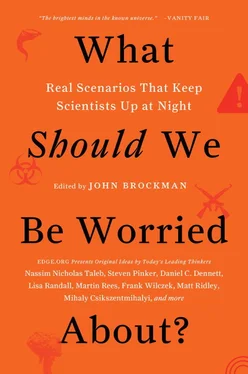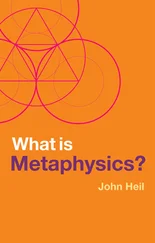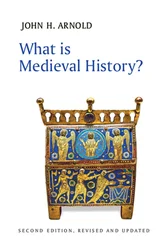We want elected officials to be intelligent people who care about doing what’s best for all the people of the nation (or the world). But elected government positions are the only jobs that have no required criteria that prospective candidates must meet, other than a minimum age and, for a president, being born in the United States. Candidates for elected office do not need to have a college degree, or success in business, or any verifiable achievements in order to be elected. They simply need to convince people to vote for them, by whatever emotional means their campaign teams can come up with. Thanks to the Fourth Culture, it has become easier to elect uninformed and even stupid candidates, through emotional manipulation in the form of appeals to religion, patriotism, class distinctions, ethnic biases, and so on (appeals fueled by huge amounts of money, of course). Sound bites and campaign ads that look like movie trailers win out over carefully thought-out logical discourse.
The press, once called the fourth branch of a democratic government because it kept the other three branches honest, is now just “the media” and has distressingly lost much, or even most, of its watchdog capabilities. In an attempt to survive financially in this Internet–dominated media world, the press has cut back newsrooms, relied more on unsubstantiated sources from the Internet, treated pop stories as news (reducing the space devoted to important stories, especially scientific stories), and allowed even the most idiotic and abusive comments to be left on their Web sites (in the name of free speech, but really to have as many comments as possible to prove to advertisers that their Web sites are popular).
We had hoped that the Internet would be a democratizing force. We had hoped that it would give everyone a voice and bring to light new ideas and new approaches to solving serious problems. To some degree it has, and it still may do a lot more. But the Internet has also given a voice to the ignorant. A voice they never had before. A loud and emotional voice. We can hope that the effects of the growing influence of the Fourth Culture do not turn out to be destructive on a large scale, but it is something worth worrying about, and it is worth looking for ways to reduce its impact. This is one more reason why expanding the Third Culture is so important.
CLASSIC SOCIAL SCIENCES’ FAILURE TO UNDERSTAND “MODERN” STATES SHAPED BY CRIME
EDUARDO SALCEDO-ALBARÁN
Philosopher & political scientist; director, Scientific Vortex, Inc.
According to classic political science and history, after medieval kingdoms based on the will of God and the king, modern secular and liberal states arose. Those modern states are sustained by secular laws intended to protect social welfare and individual autonomy. Apparently most states in the West have adopted democracy, impartial laws, and protection of human rights and therefore have moved toward modernity. However, we should worry about several “modern” states that, in practical terms, are shaped by crime—states in which laws are promulgated by criminals and which, even worse, have been legitimized through formal and “legal” democracy. The scare quotes are there because, usually, the social reality is not what the classic social sciences show it to be.
Crime is commonly thought to be, as in the movies, about bad guys confronting good guys; the two only sporadically get together, through bribery, say, or infiltration. However, data show that a gray area of collaboration and co-optation among good guys and bad guys is a constant: insurgents and counterinsurgents, public servants, politicians, candidates, and various private agents work together to define the rules of societies and shape institutions according to their own (sometimes criminal) interests.
In such states, most of the trappings of formal democracy are preserved: Bills are proposed, laws are approved, and electoral processes are carried out. Beyond this formalism, members of criminal networks are the actors in those processes. In African countries such as Sudan or the Democratic Republic of the Congo, private industry, insurgents, and public servants engage in a circular causality of corruption conducive to enormous violence.
Similar circumstances obtain in Mexico, Guatemala, and Colombia. In 2012, the United States requested the extradition of a former Guatemalan president for participating in a large-scale money-laundering scheme. In Mexico, in 2009, thirty-eight mayors of the State of Michoacán were arrested for collaborating with the criminal network La Familia. In Colombia, in July 2001, thirty governors, mayors, political leaders, and candidates signed a secret pact with the counterinsurgency group United Self-Defense Forces of Colombia to reestablish the Colombian state by creating a new set of rules. Some of the signers then became national legislators.
This is not a matter of sporadic corruption among enforcement officers; this is a matter of massive corruption and co-optation in the defining of laws and institutions—the same laws and institutions that sustain states. This is about situations in which the “bad guys” no longer confront the “good guys”; instead, they become one with the formal state, and their criminal interests are protected by the state’s laws and institutions.
Several questions arise: What can be said about laws proposed and approved by criminals? Are those “real” laws? Shall we ask individuals to decide to obey or disobey a particular law depending on whether or not the legislators favor criminal groups? What about those cases in which the legislators favor not criminal groups but powerful corporations? Do we need a different definition of “law”? Do we need a different definition of “state”?
This is not only a conceptual issue.
Civil and penal laws are at the foundation of everyday life. What we think and how we behave is the result of interaction between our brains and the codes, rules, and institutions around us. When those codes and institutions are based on criminal interests, the social and cultural definitions of right and wrong change. Then we have a society in which illegality is the norm—a society usually defined as a failed state. The result is a vicious circle that strengthens criminal networks operating across different countries—networks involved in widespread corruption, mass murder, human trafficking, kidnapping, extortion, and violence. The classic social sciences—with their dichotomies, such as legal/illegal, rational/emotional, micro/macro, and individual/social, among others—are not equipped to understand and explain the current social reality in such countries.
Beyond the traditional qualitative and quantitative tools, new integrative approaches are needed to explain current social reality. We should therefore also worry about the failure of social scientists to call attention to situations like those I have just described. While they focus on explaining that reality by means of their classic dichotomies and frameworks, some states are deteriorating into chaos.
Just as the convergence and elimination of boundaries in medicine, engineering, genetics, artificial intelligence, and biochemistry have redefined the concept of life through new and integrative approaches, the convergence and elimination of boundaries between the various social sciences will allow the redefinition of concepts like “crime,” “law,” and “state,” making them more consonant with reality. Just as we can no longer see the world in terms of organic/inorganic or natural/artificial, we can no longer see the social world in terms of legal/illegal or emotional/rational.
We need to worry both about “modern” states shaped by crime and about the classic scientists trying to explain them. Society needs armies, enforcement, and public policy, but even more important, society needs an army of challenging and Edg y forward thinkers who are not afraid of eliminating boundaries between sciences and care more about improving social reality than publishing in respected journals—an “army” of Edgies who help weak states achieve the great potential of humankind.
Читать дальше












